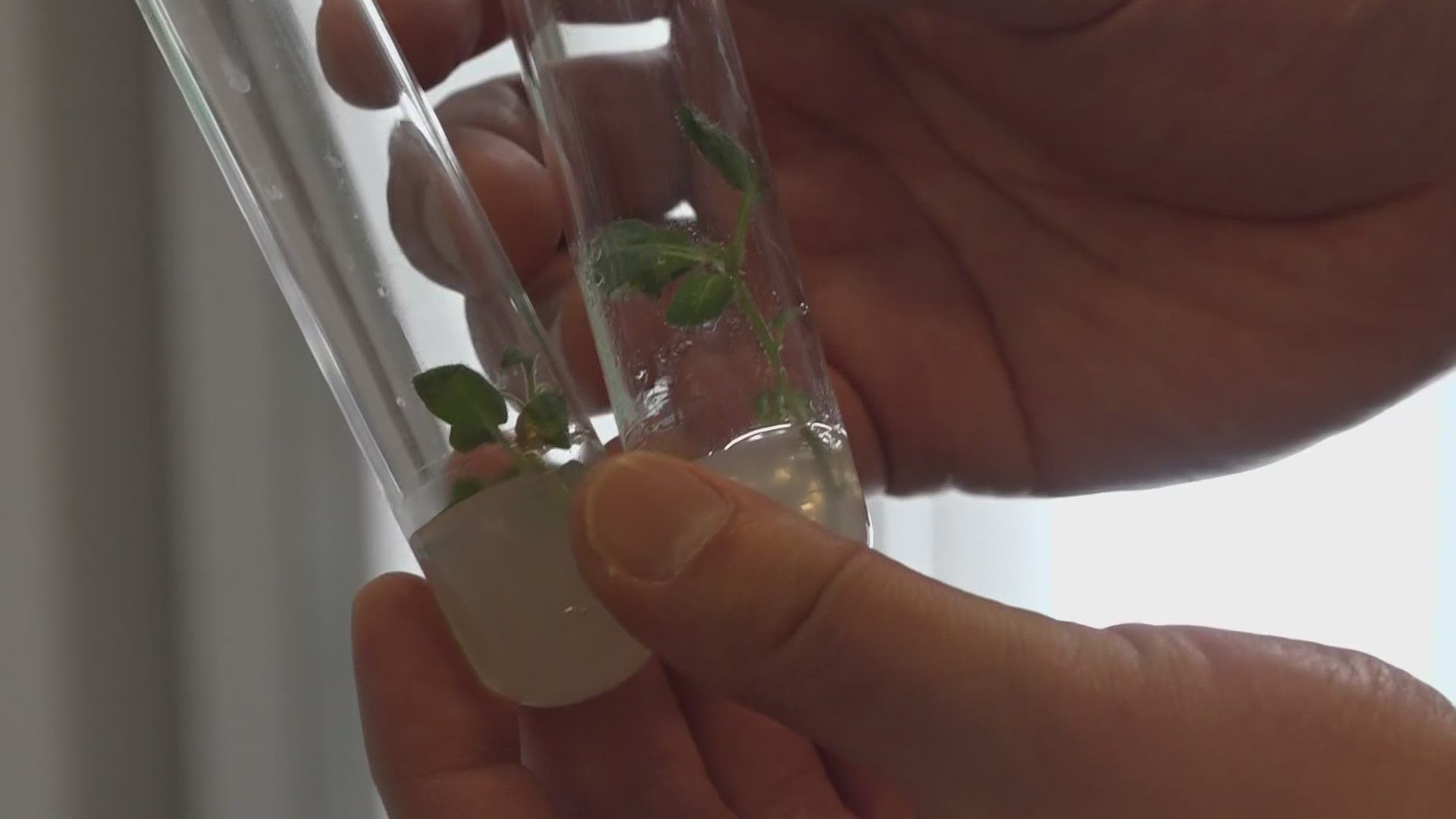ORONO, Maine — Two professors at the University of Maine in Orono are working on breeding new potato varieties.
Professor of crop ecology and management in the School of Food and Agriculture, Dr. Greg Porter, and assistant professor of plant genetics with the School of Biology and Ecology Dr. Han Tan are studying how to make more varieties using a new DNA-based tool.
"In this greenhouse, we are producing new potato varieties of our standard cultivated potatoes," Dr. Porter said. "We extract the seeds from this fruit to get new plant material."
Right now, the process is very slow and time-consuming.
"We have to spend 10 to 12 years selecting in the field, testing at many locations in the U.S., to find out what ones out of those thousands of new individuals might be useful for new varieties," Dr. Porter said.
The new DNA-based tool will hopefully help develop new potato varieties quicker, in five to six years, half the time currently needed.
Dr. Porter said their work is important for many reasons.
"Because potatoes are a very important crop, new varieties are worth millions of dollars, and so developing new varieties is really important, it's important for consumers, better quality potatoes, potatoes that are produced with less risk for the environment and its important to growers because they can more efficiently grow potatoes," said Dr. Porter.
Dr. Porter and Dr. Tan are also focused on developing potato varieties resistant to diseases and pests. They have partnered with a team of national and international researchers to develop and test genomics-assisted tools in hopes to advance the breeding of crops such as potatoes and sweet potatoes.
DNA based-tools have recently become available and are now widely used to improve a variety of economically important crops.
“Our potato improvement program is very effective at delivering improved potato varieties to Maine growers and beyond. The exciting new DNA-based tools that will be developed in this research project have the potential to speed up the delivery of new, higher quality, high yielding, pest resistant potato varieties to Maine growers and the U.S. potato industry,” Dr. Porter said.
The goal of the project is to generate DNA-based marker data and combine their normal data from the field, apply that information using computer-based models, and do predictions on what the best parent plants are to speed the development of new potato varieties.
"The effort that we are putting towards this project is to be able to make these advances for potato in particular," said Dr. Tan. "That means that we are able to make potato breeding as advanced as breedings for other crops. I think, to me, that's the most important part of this project."
This research project is funded with a $4.3 million grant from the U.S. Department of Agriculture’s National Institute of Food and Agriculture (NIFA).
Dr. Porter and Dr. Tan are part of the research group working to develop applications for potato breeding along with researchers from Texas A&M University, Cornell University, North Carolina State University, the University of Minnesota, and Oregon State University.

